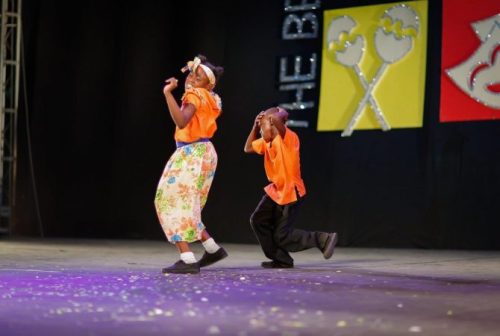JCDC Preserving Traditional Folk Forms
By: , December 20, 2022The Full Story
For almost 60 years, the Jamaica Cultural Development Commission (JCDC) has been preserving the country’s rich cultural heritage by unearthing, honing and showcasing the creative talents of Jamaicans.
Through the staging of annual competitions and activities, the Commission is making a significant contribution to national development by providing opportunities to promote the talents and cultural expressions of the people as well as advance brand Jamaica worldwide.
These include the Jamaica festival song, gospel song, festival queen, culinary arts, creative writing and visual arts competitions, and the national festival of the performing arts in dance, drama and theatre, speech and music.
Without the work of the Commission, much of the traditional folk forms that we appreciate and celebrate today might have died, Director of Arts Development and Training at the JCDC, Andrew Brodber, tells JIS News.
He says that the Commission has, over the years, implemented various programmes and strategies to promote cultural development.
These include but are not limited to training programmes in schools, islandwide competitions as well as workshops.
The programmes in schools focus on speech, drama, dance, music, and traditional folk forms as well as the arts, which includes culinary, visual and literary.

“Without the JCDC and without the kind of workshop training, competitions and facilitation that we do, we would have already lost our traditional folk forms,” Mr. Brodber contends.
“We would have lost our Jamaican product in our entertainment art; we would have lost a lot of what is Jamaican and our representation in the arts. So, I can confidently say that because we have been doing what we have been doing since 1963, we have been able to preserve and to cause a lot of the careers in all the different artistic endeavours to come forward,” he further shares.
Mr. Brodber points out that various approaches are taken each year to encourage continued participation in the programmes by teachers and students.
“We have the privilege of seeing youngsters and mature people demonstrating the art forms of Jamaica before us annually,” he notes.
“This is no ordinary feat because in some cases, only the older people would have retained some of the things we know as Jamaica’s culture and performing arts or unique art. Some of our celebratory events would not have the content if we didn’t have a formula, which is to get out there through the educational system, through culture clubs, through the various other clubs and organisations …whether they be in the community or through police and church groups,” Mr. Brodber points out.
“We have an islandwide network, and we make sure we have communication on the ground with the people and through social media… . We run a programme that is sustained through various kinds of support, and we are very happy that Jamaicans, both locally and overseas, do enjoy the benefits of being associated with us,” he adds.
The JCDC has also implemented Culture Clubs, which are focused on inspiring young people to become more involved in community development while learning more about Jamaica’s customs and traditions and developing their creative talents.
Mr. Brodber tells JIS News that the incorporation of technology has been critical to the work of the Commission, particularly during the peak of the COVID-19 pandemic.
“Technology is wonderful and we have been more or less coerced by the pandemic to really focus more on our use of online platforms. We have done that quite easily,” he says.
He notes that even with the resumption of face-to-face engagement, the Commission still utilises a virtual approach, where necessary, to expand its reach to persons and promote participation in the various competitions and activities.
Meanwhile Mr. Brodber thanked all the players, who have been integral to the continued development of the Commission over the years.
“We really want to thank our parents, our principals and especially our young talents, who continue relentlessly despite the pandemic, despite the challenges.
“They still recognise the importance of our performing arts, our unique arts, our creative arts, what this will contribute not only to Jamaica but their own lives and to the community. Much gratitude to all those who continue to put shoulder to the wheel and to ensure that we have a vibrant Jamaica in the area of our responsibility,” he says.
The JCDC is an agency of the Ministry of Culture, Gender, Entertainment and Sport.
The entity, at its establishment in 1963, was known as the Festival Office of Jamaica, and in 1968, it evolved into the Festival Commission and became a burgeoning force for cultural development on behalf of the Government.
The Act of Parliament in September 1968 broadened its mandate to encourage the annual independence anniversary celebrations throughout the island as well as to stimulate the development of local talents.
The entity’s mandate was extended by another Act of Parliament (Act No .8 of 1980), and with this, its name was changed to the Jamaica Cultural Development Commission.

